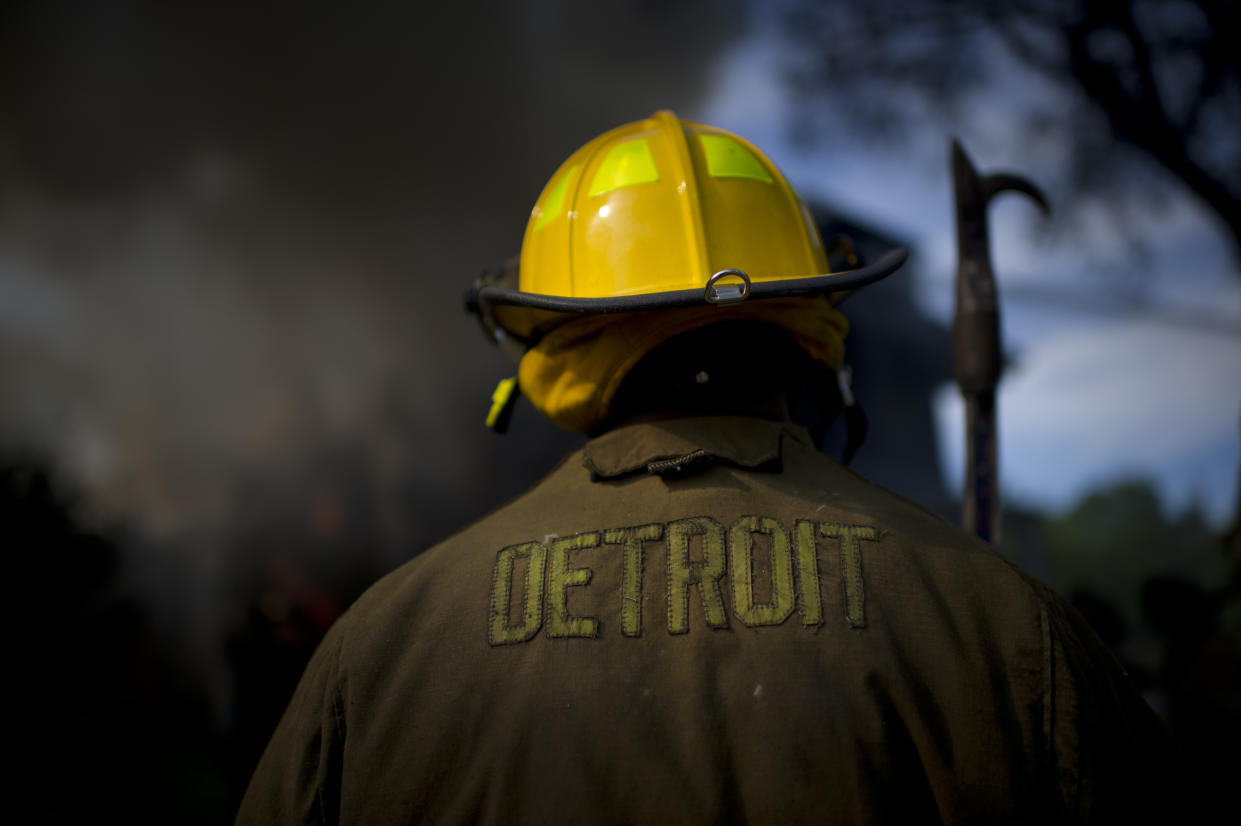Detroit firefighters and EMS workers ordered to clean up blood, bodily fluids despite no training or equipment

The Detroit Firefighters Association has issued a complaint against a new policy that requires first responders, including firefighters and EMS workers, to clean up bloody scenes despite being given no biohazard training or disposal equipment.
Want daily pop culture news delivered to your inbox? Sign up here for Yahoo’s newsletter.
The city’s Bodily Fluid Aftermath Cleanup policy went into effect this week. It puts the onus on the firefighters and EMTs to clean up the blood, bodily fluids and body parts left behind after they provide life-saving assistance to victims of medical emergencies.
The ask is mind-boggling to Mike Nevin, president of the Detroit Fire Fighters Association, as it’s unlike anything he and his colleagues have ever done.
“We are not janitors, and we certainly are not biohazard experts,” he told the Detroit Metro Times. “Employees have received no training on blood and bodily fluid clean-up and have no knowledge of proper procedures involved as this is not fire-fighting or EMS work.”
The controversial policy reportedly advises, for example, taking a hose and “blasting body parts towards a sewer,” Nevin said. “That’s not how we mitigate disasters. That’s not even humane.”
Frustrated, Nevin filed a complaint on behalf of the union with the Michigan Occupational Safety and Health Administration (MIOSHA). He said the policy is a safety threat both to first responders and to the public. This kind of clean-up has traditionally been reserved for experts trained in biohazard remediation, who are also qualified to determine whether a scene has been thoroughly sanitized.
Te stress of dealing with such scenes is enough on a first responder without having to be responsible for clean-up, too, Nevin suggested.
Another concern among insiders is the clean-up policy’s potential to delay response times among firefighters and EMS workers. In a recent ambulance call shared with Detroit’s WXYZ, a dispatcher is trying to locate a first responder, who replies, “Ma’am, we’re still cleaning up blood. We’re going to be a minute.”
Nevin noted that delays are made even longer by crime scene forensics units, who have to do their jobs after first responders address the scene. After those units are done, then biohazard clean-up can happen. “We can’t get to our scenes, or emergencies, quick enough as it is,” he said.
OSHA’s Bloodborne Pathogens standard sets strict requirements to safeguard first responders and other professionals who might come in contact with medical scenes — as well as the public — from blood-borne diseases. Detroit’s Bodily Fluid Aftermath Cleanup policy seems to contradict that.
Yahoo Lifestyle has reached out to MIOSHA, the Detroit Fire Department, and Commissioner Eric Jones for comment on the policy. The fire department offered no comment when contacted by WXYZ.
Read more from Yahoo Lifestyle:
Follow us on Instagram, Facebook and Twitter for nonstop inspiration delivered fresh to your feed, every day.

